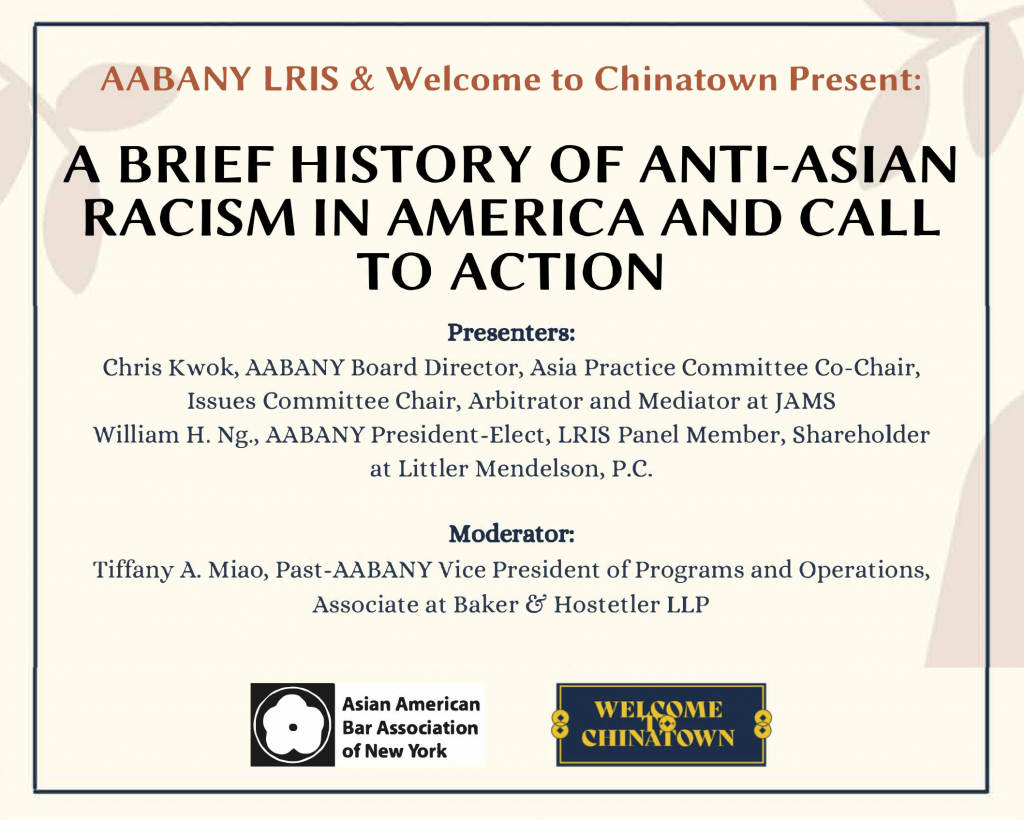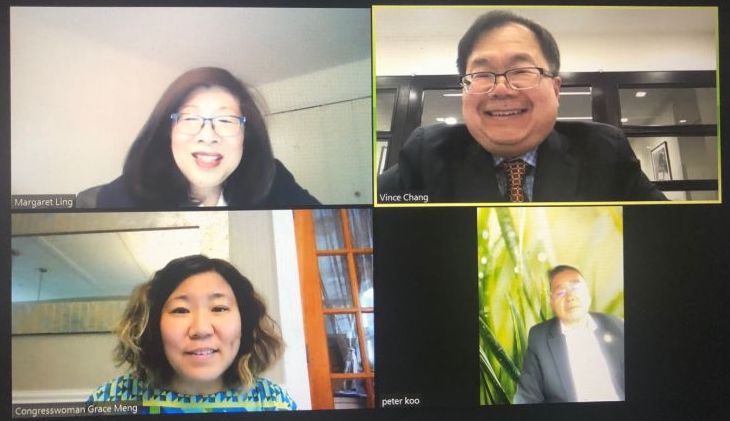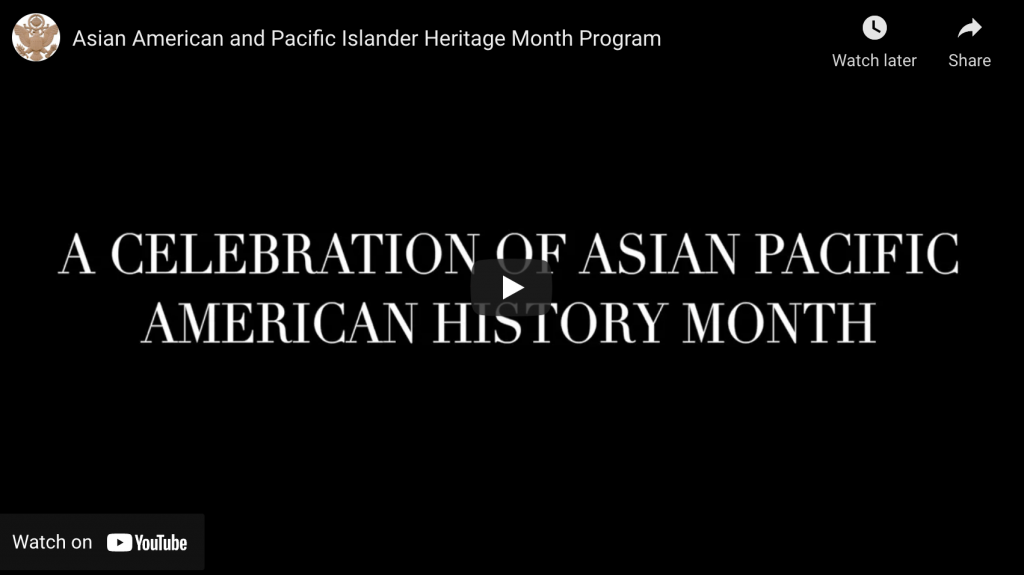
On Tuesday, May 25, 2021, the Asian American Bar Association of New York’s Judiciary Committee hosted its annual Judges’ Reception on Zoom. The reception honored newly inducted, elevated and retiring judges in celebration of Asian American and Pacific Islander (AAPI) Heritage Month.
Will Wang, Co-Chair of the Judiciary Committee, served as Master of Ceremonies and welcomed the judges and the attendees to the virtual reception. Last year’s event did not happen, due to COVID-19, and we were pleased to be able to host judges and attendees virtually via Zoom this year.
The following elevated judges were honored:
Hon. Shahabuddeen Ally, Supervising Judge, New York City Civil Court, New York County
Hon. Katheryn S. Paek, New York City Criminal Court, New York County
The following newly elected judges were honored:
Hon. Wyatt Gibbons, New York Supreme Court, Queens County
Hon. Philip T. Hom, New York Supreme Court, Queens County
Hon. Leigh K. Cheng, New York City Civil Court, Queens County
Hon. Hyun Chin Kim, County Court, Orange County
Hon. E. Grace Park, New York City Civil Court, New York County
Hon. Meredith Vacca, County Court, Monroe County
Hon. John Z. Wang, New York City Civil Court, New York County
The following newly appointed judges were honored:
Hon. James R. Cho, United States Magistrate Judge, United States District Court, Eastern District of New York
Hon. Diane Gujarati, United States District Judge, United States District Court, Eastern District of New York
The reception also recognized and honored two judges who had retired from the bench:
Hon. Peter Tom, New York Supreme Court, Appellate Division, First Department
Hon. Doris Ling-Cohan, New York Supreme Court, Appellate Term, First Department
The honorees recognized at the event are trailblazers for Asian Americans in the judiciary. Of Blacks, Hispanics, and Asians, Asians remain the least represented group in positions within the judiciary. Although Asians make up around 6% of the United States population, in 2020, they comprised less than 3% of federal judges. In the state of New York, although Asians make up 9% of the population, Asians represent a mere 2% of state judges. That number raises even more concern when we consider that Asians account for some 14% of the population in New York City, and Manhattan’s Chinatown is literally right around the corner from State and Federal courthouses. In light of current events and the rise in anti-Asian violence, AAPI representation on the bench is more important than ever. AABANY thanks the honorees for their pioneering example.
In honor of AAPI Heritage Month, the Judiciary Committee also held a short trivia game where participants would answer questions about the history of Asian American Pacific Islanders in the United States. Questions included: What was the purpose of the Chinese Exclusion Act? Which President signed the joint resolution commemorating APA Heritage Month? What was the reason for boycotting Miss Saigon on Broadway? The winners, who each answered nine out of the ten questions correctly, were Joseb Gim, AABANY Prosecutors’ Committee Co-Chair; L. Austin D’Souza, AABANY Judiciary Committee member and SABANY President-Elect; and the Hon. Doris Ling-Cohan, an AABANY Founding Board Member and the AABANY Trailblazer Award honoree from the 2020 Fall Conference. The winners received buttons which had been created to raise funds for AABANY’s Pro Bono Clinic, inscribed with the words “One Humanity against the Virus.”
Congratulations to all the judges who were recognized and honored at this year’s Judges’ Reception, and thanks to everyone who joined us for this event.
To learn more about AABANY’s Judiciary Committee and its work, click here.




